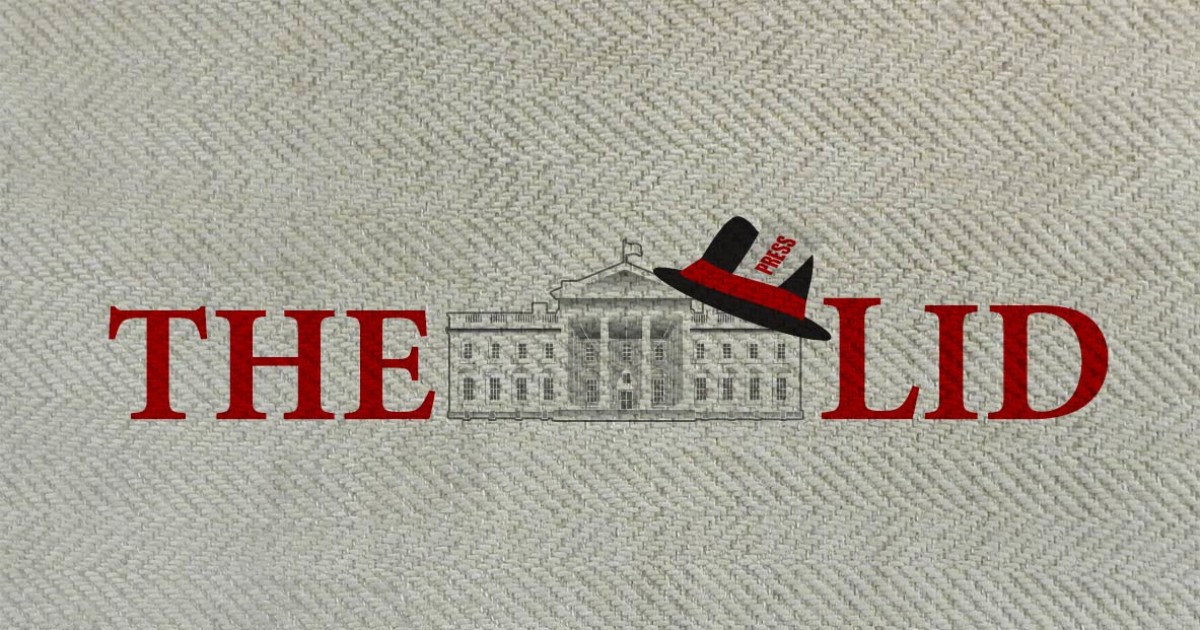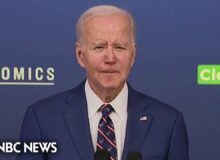(Updated 10/9)
Two political releases happened just prior to Shabbos this week. One was the truly horrific statements about women made by Donald Trump ten years ago, the other a WikiLeaks release of emails from the files of Hillary Clinton campaign head, Jon Podesta. While the media has been (rightfully) covering the ten-year-old Trump statements, they’ve been ignoring the WikiLeaks story which so far (there are almost 2,000 emails to go through) reveal that Hillary’s supported giving up U.S. sovereignty to a “hemispheric common market, with open trade and open borders,” and the story which we will discuss today, which explains how she “owns,” George Stephanopoulos of ABC News, and they poke holes in her claim that she was not involved in the decision to allow people who donated millions of dollars to the Clinton Foundation donors to sell 20% of U.S. uranium assets to a Russian-owned company in the Uranium One deal.
On April 26, 2015 Peter Schweizer appeared ABC’s This Week as part of the promotional tour for his newly released book, “Clinton Cash” which explains the uranium and similar state department deals which benefited Clinton foundation donors.
From the very beginning of the interview George Stephanopoulos (who worked in the administration of Bill Clinton) attacked Schweizer, not on the merits of his research but in an attempt to damage Schweizer’s credibility.
Many thought that Stephanopoulos’ was simply protecting Clinton because of their long-term relationship. But in Friday’s WikiLeaks dump Team Clinton brags about their work helping the ABC anchor to put down Schweizer. Another email indicates that “testimony” of the Stephanopoulos/Team Clinton’s witness claiming Ms. Clinton had no involvement with the Uranium One deal was made by someone who was asking campaign head John Podesta for a job within the Clinton campaign.
Before we proceed in the interests of transparency that neither Team Clinton or George Stephanopoulos cared about, when writing for Breitbart years ago Peter Schweizer was one of the editors I worked with. However, as you are about to see, this story is based upon the words and emails of the people involved not any relationship I may have with Mr. Schweizer.
From the very start of the April 2015 interview with Peter Schweizer, George Stephanopoulos was serving the Clintons by attacking Schweizer rather than serving the audience of the program by seeking information about the book or how the research was conducted.
Eventually Stephanopoulos got into the content of the book. He pointed out the State Department was only one of nine votes needed to approve the uranium deal. He also explained that Jose Fernandez, the state department employee most involved with the Uranium One deal giving a Russian company control of 20% of America’s uranium reserves said Mrs. Clinton was not involved. So who cares if at the very same time the Clinton Foundation was receiving millions of dollars from people connected to the sale of Uranium One? That’s just a coincidence.
Stephanopoulos wasn’t done, rather than attacking Schweizer’s research, or the way it was conducted, he went after the author’s credibility by asking, “As you know, the Democrats have said this is — this is an indication of your partisan interest. They say…you used to work for President — President Bush as a speechwriter. You’re funded by the Koch brothers. How do you respond to that?”
Schweizer explained that after he was done, he went to the investigative units at “The New York Times,” “ABC News, and “The Washington Post” check his work (none of them with a conservative reputation).
One may wonder where Stephanopoulos came up with all those personal attacks and the information about Fernandez. Based on Friday’s WikiLeaks release of John Podesta emails, there is strong evidence that Stephanopoulos was fed his information from his old friends at Team Clinton.
On the day of the Stephanopoulos/Schweizer interview, Josh Schwerin a Clinton campaign spokesman sent the transcript of the interview to the campaign’s rapid response team list. Jesse Ferguson another Clinton campaign spokesman replied to Schwerin with an email to the team:
“great work everyone. this interview is perfect. he [Schweizer] lands nothing and everything is refuted (mostly based on our work)”
“Based on our work?” That certainly sounds like they did the research that Stephanopoulos used to attack the author. Oren Shur, the campaign’s director of paid media to Schwerin responded with, “nice work here.” Unless Stephanopoulos was on the rapid response team, Ferguson and Shur were complementing the people on the list for their work.
Another WikiLeaks email reveals three days before the Stephanopoulos interview, campaign press secretary Brian Fallon sent an email to Jo Becker and Mike McIntire of the NY Times that in part expressed the campaigns disappointment that the Times didn’t ignore Schweizer’s research because he is a partisan:
“We are extremely disappointed that the *New York Times* intends to rely on research culled from a biased author like Mr. Schweizer. During our conversations with the *Times*, it has been unclear to what extent, if at all, the *Times*’ reporting goes beyond the allegations made in *Clinton Cash*. This is troubling because, as has been well documented already, the book’s author is a known Republican operative whose organization has links to the Koch brothers and a major donor to Ted Cruz. Moreover, the book’s rollout has been coordinated with another Republican presidential candidate, Rand Paul. It is worrisome that the Times would repeat the claims from such a questionable source.”
Notice the email to the NY Times contained many of the partisan attacks that Stephanopoulos used against Schweizer. Makes one wonder if he hacked into the campaign’s emails or more likely if the same information was given to him by someone on the Clinton payrolls.
Later on in the same email Fallon made the argument (also used as an attack point by Stephanopoulos) that Hillary Clinton was not involved in the decision.
“Apart from the fact that the State Department was one of just nine agencies involved in CFIUS [the administration committee that approved the uranium deal]. (…) The State Department’s principal representative to CFIUS was the Assistant Secretary of State for Economic, Energy and Business …Jose Fernandez. As you are aware, Mr. Fernandez has personally attested that “Secretary Clinton never intervened with me on any CFIUS matter.”
Let’s put aside for a moment the question of whether it is appropriate for the secretary of state not to be involved in a decision that would result in a Russian-owned company owning 20% of the uranium used by the U.S. Instead let’s ask whether or not Mr. Fernandez could be trusted to make an honest report of Ms. Clinton’s involvement with the decision.
In another WikiLeaks email we learn that five days before Fallon told the NY Times the uranium decision was all Fernandez’s, Jose Fernandez wrote an email to John Podesta thanking the campaign head for calling him. He also thanked Podesta for his advice in securing a position with the campaign:
“John, it was good to talk to you this afternoon, and I appreciate your taking the time to call. As I mentioned, I would like to do all I can to support Secretary Clinton, and would welcome your advice and help in steering me to the right persons in the campaign.”
This does not prove Mr. Fernandez was lying when he said Hillary wasn’t involved in the uranium One decision, but it certainly calls his account into question. After all he was looking for a job within the campaign, and at least in the opinion of some, it is a bit strange the secretary of state would not be involved in a decision giving Russia control of one-fifth of our uranium.
These particular documents call into question the media coverage of Hillary Clinton which at times has been extremely biased. Even if it’s not all the mainstream media, it is apparent that George Stephanopoulos acted as a public mouthpiece for the team Clinton talking points. He didn’t even take a skeptical eye at the alibi Mr. Fernandez gave to Ms. Clinton in the Uranium One deal, which based on the evidence may have been tainted.






